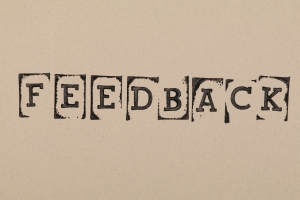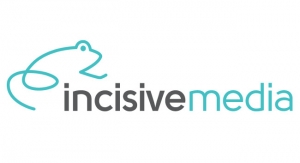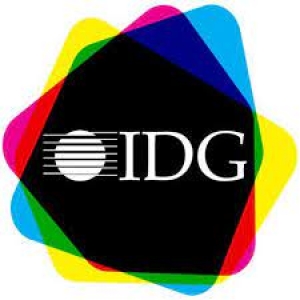Site Owner
Annella West
Nella joined us in 2022, having worked within the insurance markets as a customer facing consultant. A very personable and consultative resourcer, Nella manages our corporate clients such as law firms. When not at work, Annella can be found at the gym, letting off steam from raising her young family and a constant flow of home improvements. The latter, she'd rather not be reminded of.
Inclusion and diversity….going beyond issues of equality and fairness, what importance does it bring to the workplace?
- Diversity is essential to businesses, with benefits ranging from innovative concepts through to improved performance.
- The International Labour Organization reports that currently one in four employees feel underappreciated in their workplace. *
- There is not a single ‘skill fix’ to improve diversity and inclusion within a company, instead different strategies must be implemented throughout the levels of your company to generate greater well-being and productivity.
What is diversity and inclusion?
Diversity in any company relates to a business that purposely ensures their employees are made up of a range of different attributes which could range from gender, religion, education, age, and further characteristics. Furthermore, inclusion refers to the extent which those employees feel appreciated and part of the team, (feeling utilised for their advantageous past experiences and ability).
How has Covid-19 showcased diversity and inclusion issues?
Recent reports have demonstrated that employees have growingly noticed inequalities within their company, as evidenced by the ‘Great US Resignation’ during the pandemic. It has become apparent, as businesses globally work on recovery strategies, that an employee-focused approach leads to improved results. With the recruitment industry turning to a candidate market post-pandemic, employees have emplaced a higher importance with their employers to demonstrate improved diversity.
Strategies to improve diversity and inclusion within the workplace…
Four key methods include:
- Demonstrating an importance for diversity and inclusion within an organisation through key operations and policies implemented within the company culture and core business strategies.
- Open opportunities for all, allowing greater possibilities for minority groups to receive top-level roles.
- Making sure that employees across all levels are made accountable, ensuring that they act as role models to create improved team cohesion.
- Constantly reviewing diversity and inclusion policies to align with employee needs and requirements.
The future – adjusting diversity and inclusion strategies for a hybrid working approach
By not providing an inclusive working space, regardless of whether diversity has been taken into consideration, it is likely that a company will encounter hardship with enhancing their long-term goals and performance. With the pandemic leading to what has become a ‘hybrid working norm’, it has caused further issues with maintaining a diverse and still inclusive culture.
Whilst working remotely, it is important to consider:
- Work–life balance
Covid-19 has presented an opportunity for employees to rethink the trade-offs between work and personal life aspirations and importance. This has led to a rise in resignations with employees moving to organisations which demonstrate flexibility and meaningful work.
For organizations this has helped to retain and attract employees, where their policies reflect flexibility i.e., through flexi hours, work-from-home and semipermanent flexi location opportunities. Managers that promote and execute various work-life balance opportunities are likely to receive better employee working attitudes and motivation, especially welcomed by new staff.
- Team bonding
It is just as important to take into consideration that despite flexibility being seen as a benefit, it can also lead to isolation. This is particularly apparent within organisations where team cohesion is weak. To improve team bonding within the workplace, employees should have opportunities to form relationships with others i.e., through team events.
Additionally, efficient conflict management training should be provided to employees and allow effective integration for new staff i.e., through focused team meetings. Keeping team spirt and bonds close regardless of physical distance is vital to build trust and achieve collaboration.
- Mutual understanding
With a mix of working from home and at the office, in-person interactions have reduced and communication has become increasingly reliant on written form. As a result, employees can feel disconnected to their team, and it presents a greater opportunity for miscommunication.
To reduce negative implications, an organisational culture should encourage the importance of learning about co-workers and adopt a growth mindset, this can be achieved through recognising and celebrating employee contributions as well as presenting opportunities for two-way feedback.
Inclusion and diversity….going beyond issues of equality and fairness, what importance does it bring to the workplace?
Businesses that have embraced diversity and inclusion have benefited from a higher retention levels of staff. As employers and employees adjust to the changes in working style brought on by Covid-19, it is important that as policies adapt i.e., to allow for hybrid working flexibility, the importance of diversity and inclusion is equally reflected. Whilst there are many challenges, a company that is able to effectively model a diverse and inclusive environment will increase their odds of improvements within areas including employee performance, cohesion and engagement, health and wellbeing as well as retention.
By Hannah O’Callaghan
Senior Recruitment Consultant, ZBusiness Limited
*Source - news.un.org
Giving Constructive Feedback.
Giving feedback in recruitment is hard. It’s time consuming, requires thought and can be especially tough if a candidate has been unsuccessful. Many people, including myself, find it difficult to do this. You don’t want to offend the person, hurt their feelings or knock their confidence. Sometimes it’s just tricky to articulate ‘why’ you don’t want to progress an applicant.
Delivering criticism positively and effectively becomes even more difficult when in a face to face setting. Many candidates will ask during an interview how they did, or whether you have any concerns about them. This can sometimes have you on the backfoot not knowing what to say. And it can be easier to say ‘no concerns’, and then later feedback to them, or their recruiter all the negatives. This never goes down well with candidates! But there are ways to minimise a negative impact.
- Start with a positive. List their strengths. Tell them what you liked - ‘You maintained excellent eye contact in this interview, something that many candidates find difficult’, or ‘I really enjoyed the example you gave of working under pressure’ etc. Whatever you choose, make it as specific to them as possible.
- Ask them how they feel it went. Invite them to contribute to the conversation. I can’t think of a single candidate who has responded to this question with ‘I was amazing. Nothing to improve on’. This approach allows you to deliver constructive feedback in a setting where they are ready and willing to listen.
- It’s always worth acknowledging with candidates that nobody is perfect, we all have areas to improve on.
- Remember your FABs. Feature, Advantage, Benefit. What is their goal? When delivering constructive feedback, make it specific to that goal. This shows you care, and allows them to positively process anything negative, because they know it’s coming from a good place. For example, you have interviewed a candidate and the responses to your questions are short and abrupt. This has made it difficult to assess their skillset and suitability for the role (Feature). Next time, if they are able to elaborate on each example, use more detail, they will get a better response from their interviewers (Advantage), making it easier to secure employment (Benefit).
- Be direct. Let’s not sugar coat this. Giving negative feedback isn’t nice for anyone. Even if it is delivered constructively, kindly and fairly.
The most important thing is to deliver feedback. Even positive feedback should be delivered constructively and specifically. ‘You were great!’ is not as meaningful and impactful as ‘You really demonstrated how you build rapport with clients in the examples you gave. I particularly like how you approach new business’ etc. Detail shows you are listening and you care. This reflects well on you, and on your business.
I still struggle with giving constructive feedback and I don’t get it right every time. It is a work in progress.
If you’d like to discuss any of the points raised or would like to share your experiences, please get in touch with one of the ZBusiness Ltd. Team.
Nadia Zachary. Director of ZBusiness. Opinions expressed are solely my own.
Managing Director
Where ZLive differ from a typical recruitment agency is the depth of understanding they drive for with every role they are briefed on. They try and understand not just the role itself, but the team it fits into, as well as the distinct culture of the overall business. Alongside a deep knowledge of the complex modern events sector this makes them a valued partner for our business.
HR Director
ZLive is a true partner, with extensive knowledge of our industry and business. What impresses me most is, how ZLive is able to present 2, max 3 candidates and we are always able to hire from this small pool of talent. In my view that is the exact value add an agency can offer and ZLive never fails to deliver on this.








